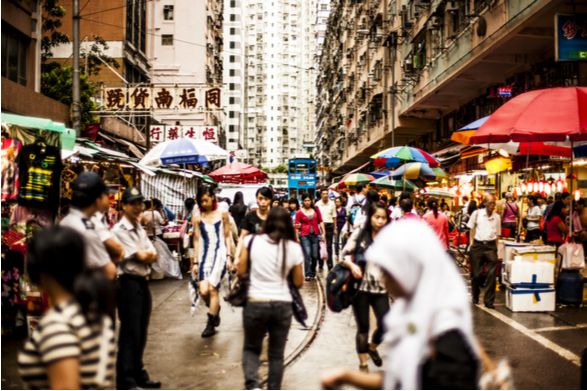Wrecking and defacing property isn’t a custom in this capitalist redoubt. But during seven weeks of protest, some Hong Kongers have appropriated police barricades as battering rams, bashed in doors, broken windows, hurled bricks and eggs, scrawled graffiti on government buildings and splattered paint on emblems of Chinese sovereignty and Hong Kong authority.
China, and its anointed chief executive for Hong Kong, Carrie Lam, aren’t pleased. The Beijing regime has accused the protesters of having “blatantly challenged the national sovereignty” and called for Hong Kong authorities to use “all necessary measures.” Lam has warned that “violence will only breed more violence” and repeatedly stressed that “nothing is more important than the rule of law.”
It would be a great folly for America and the West to take these denunciations of the protesters at face value or condemn the protest movement wholesale.
One needn’t condone property damage to understand that there is far more to this picture. These attacks on doors, walls and symbols aren’t random acts of destruction or pillage. They are messages — the predictable result of government diktats, in both Beijing and its Special Administrative Region of Hong Kong, that have left Hong Kong’s people with no way to defend their rights and freedoms except to protest in the streets.
For that matter, the vast majority of the protesters have done nothing more aggressive than march peacefully through the streets in the sweltering summer heat, having obtained permits to do so. It speaks awfully well for Hong Kongers that none of the many protests have degenerated into looting — despite the hundreds of thousands, or 1 million, or 2 million people marching past shops crammed with high-end merchandise.
As for some of the protesters damaging government property, it is worth asking who’s been doing more damage to Hong Kong’s rule of law: the protesters who splashed paint, or the government that keeps coming up with laws that serve the interests of Beijing’s Communist tyranny.
Lam is correct that rule of law is important. But she omits a vital corollary: It also matters who gets chosen — and how — to make the laws. Genuine democracy, with honest elections, yields chief executives and lawmakers who answer to the voters and have at least some incentive when they produce laws to pay attention to what the voters want.
In Hong Kong, that isn’ t how it works. The selection of both the chief executive and the legislature is rigged to reflect the preferences not of Hong Kong voters, but of China’s ruling Communist Party.
When demonstrators broke down the doors of Hong Kong’s legislature on July 1, they weren’t attacking a hallowed seat of democratic process. They were targeting a hollow institution: the rubber stamp legislature through which Lam had tried to rush a bill that would have allowed extradition from Hong Kong to China — a setup configured not to bolster Hong Kong’s rule of law, but to destroy it.
It took the biggest street protest in Hong Kong’s history to persuade her to suspend passage of the bill, which she is still refusing to withdraw entirely.
When protesters this past Sunday expressed their opinion of China’s liaison office and de facto shadow government in Hong Kong by pelting it with eggs and blotting the national symbol with paint, they were taking big risks to send the message that they don’t like the tyranny closing in on their lives.
China’s government has every right, under law, to complain about the eggs and paint. But what about the rights of Hong Kong’s people to populate their government with the leaders they want, via free and fair elections?
What about their right to hold China to its promise to Hong Kong of 50 years of “One Country, Two Systems”?
Hong Kong is one of the world’s great cities, China’s main financial portal to the planet and home to more than 7 million people versed in the responsibilities of a law-abiding free society.
But China’s tightening chokehold is turning Hong Kong’s process of law-making and governance into a tumultuous interaction in which the authorities come up with repressive edicts, and the people have no recourse but to respond with mass demonstrations, now fringed with graffiti and broken glass.
If China’s President Xi Jinping wants to restore calm, there’s an honorable and efficient way to do it, without tear gas, arrests or bloodshed. Not that he’s likely to do the right thing, but we in the democratic West can’t say it often enough to him: Honor China’s promise. Take a step toward true justice and rule of law. Let Hong Kong hold real elections.


